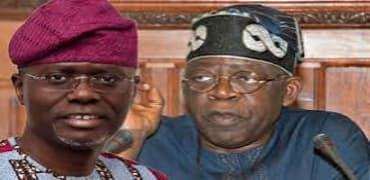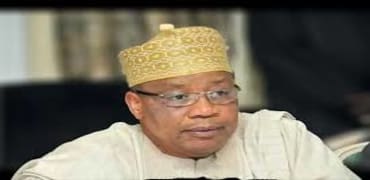Lavish Spending and Mounting Debt: How 29 Nigerian States Burnt N2 Trillion on Travels and Perks in 2024
Lavish Spending and Mounting Debt: How 29 Nigerian States Burnt N2 Trillion on Travels and Perks in 2024
By Achimi muktar
Despite growing economic challenges and persistent cries for better governance, 29 Nigerian states collectively spent a staggering ₦1.99 trillion on recurrent expenditures, including travel, refreshments, and utilities, within the first nine months of 2024. This eye-opening figure, obtained from budget performance reports, has sparked public outrage and renewed scrutiny of the nation’s fiscal management.
Billions on Travels, Minimal on Impact
From lavish allowances to extensive travel bills, state governors appeared to prioritize operational perks over pressing developmental needs. The spending spree was highlighted by Lagos, Plateau, and Delta States, which emerged as the biggest spenders, with recurrent expenditures of ₦375.19 billion, ₦144.87 billion, and ₦121.54 billion, respectively.
Meanwhile, governors didn’t shy away from borrowing. Niger State topped the list with loans worth ₦79.09 billion, followed by Katsina (₦72.89 billion) and Oyo (₦62.48 billion). Yet, despite these loans, many states still fell significantly short of their revenue targets.
A Revenue Deficit of Nearly ₦1 Trillion
While state governments generated a total of ₦1.92 trillion in internally generated revenue (IGR), they missed their collective target of ₦2.87 trillion, resulting in a ₦948 billion deficit. States like Adamawa, Ondo, and Taraba recorded especially poor performances, earning far less than they spent. For example, Adamawa generated just ₦9.16 billion while spending ₦41.45 billion on recurrent expenses.
In stark contrast, Lagos led in revenue collection, raking in ₦912.15 billion, followed by Rivers with ₦269.18 billion. However, even the financial powerhouse Lagos spent extravagantly on perks and utilities, drawing criticism for its lack of austerity.
Debt Servicing Drains Budgets
Beyond borrowing, the states collectively paid ₦658.93 billion to service debts owed to local, foreign, and multilateral creditors. Experts argue that these obligations are suffocating potential developmental investments.
For example, Delta State spent ₦121.54 billion on recurrent expenses, allocated ₦55.9 billion for debt servicing, and generated ₦97.02 billion in revenue. Similarly, Plateau State’s ₦144.87 billion operating expenses dwarfed its revenue of just ₦18.03 billion.
A System Under Fire
Critics, including Professor Segun Ajibola, an economist at Babcock University, have slammed state assemblies for failing to enforce fiscal accountability. He described the lack of oversight as a core driver of the reckless spending spree, with governors running their states “like private estates.”
“The enduring problem of high governance expenses persists because state assemblies have abandoned their oversight duties,” Ajibola said. “This leaves governors with unchecked powers and little regard for transparency.”
The Fiscal Responsibility Commission also weighed in, warning that the current fiscal federalism structure is unsustainable. The commission called for urgent reforms to ensure states prioritize investments that directly improve the lives of their citizens.
Where Do We Go from Here?
While statutory allocations from the Federation Account increased by 40% this year—thanks to the removal of fuel subsidies and foreign exchange reforms—the funds have not translated into meaningful benefits for grassroots communities. Experts are calling for stringent fiscal reforms, greater accountability, and a reevaluation of priorities to curb wasteful spending and channel resources into critical development projects.
For now, however, the numbers paint a grim picture of a system that prioritizes the comforts of leadership over the well-being of its citizens—a trend that many believe must change if Nigeria is to navigate its economic challenges successfully.





















